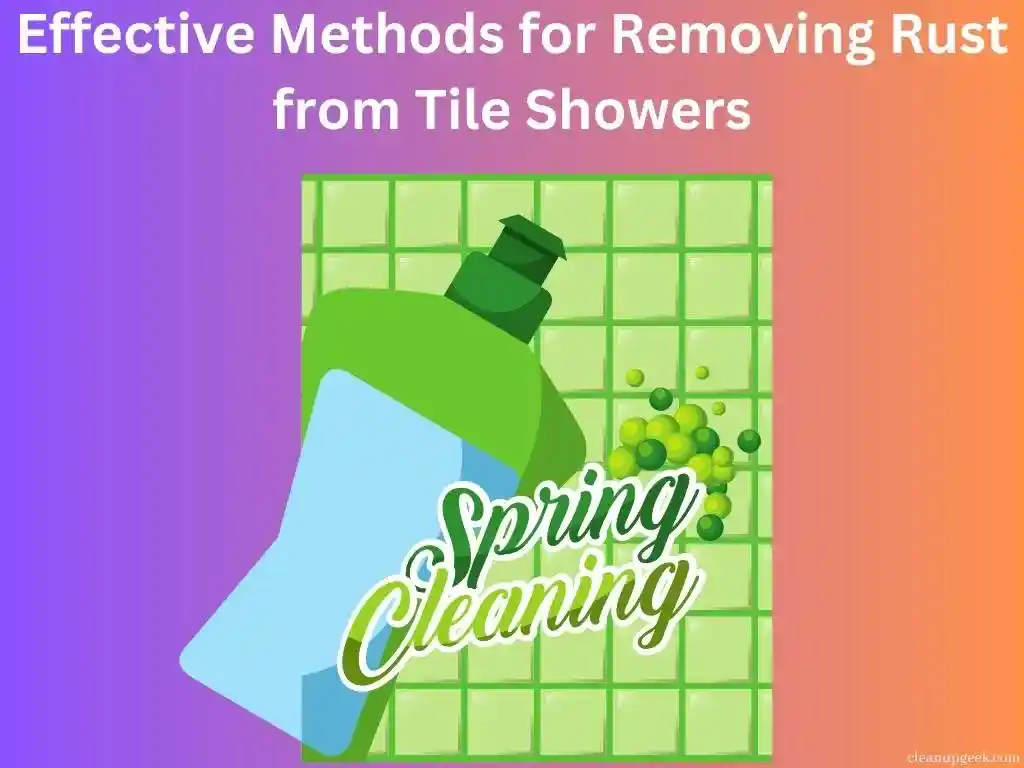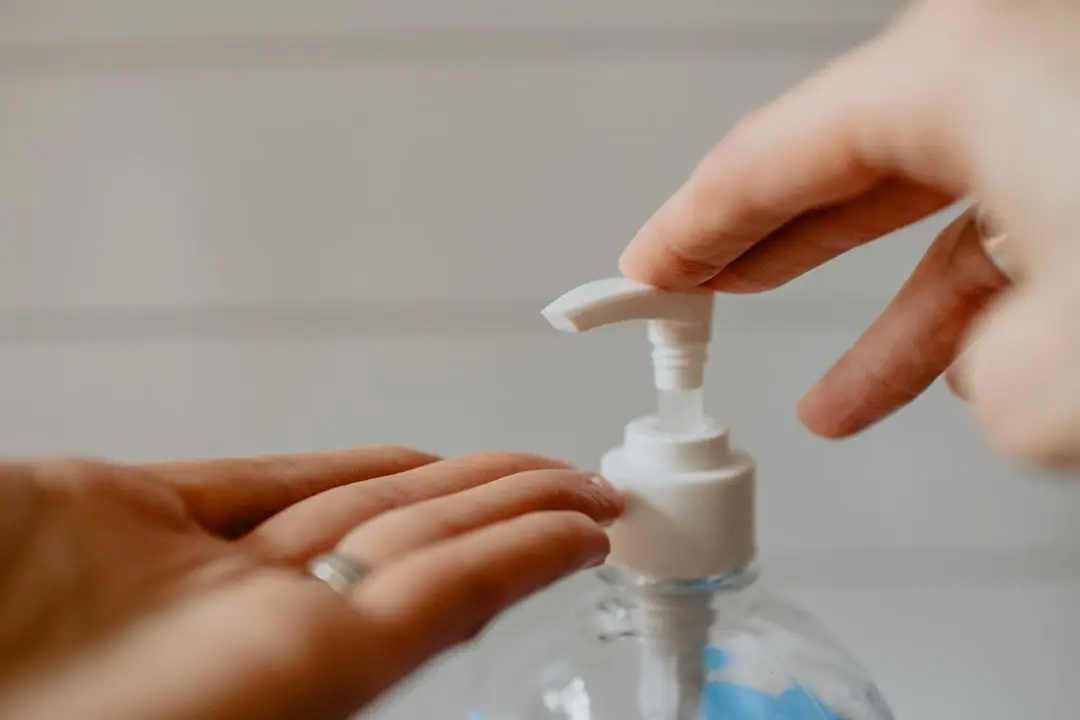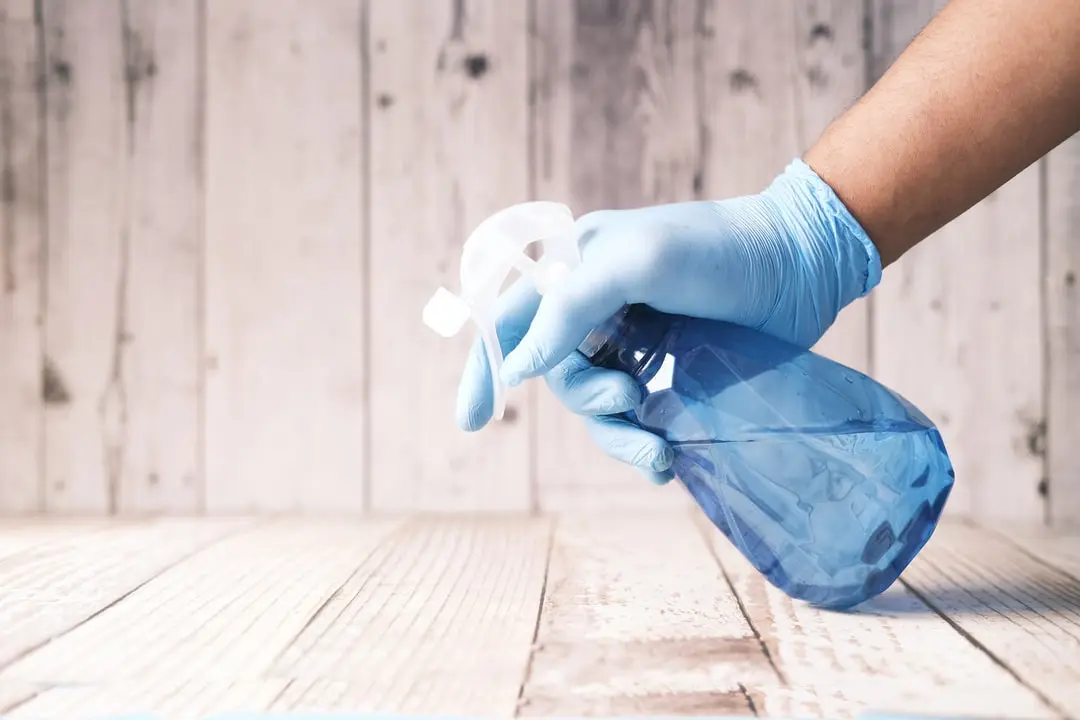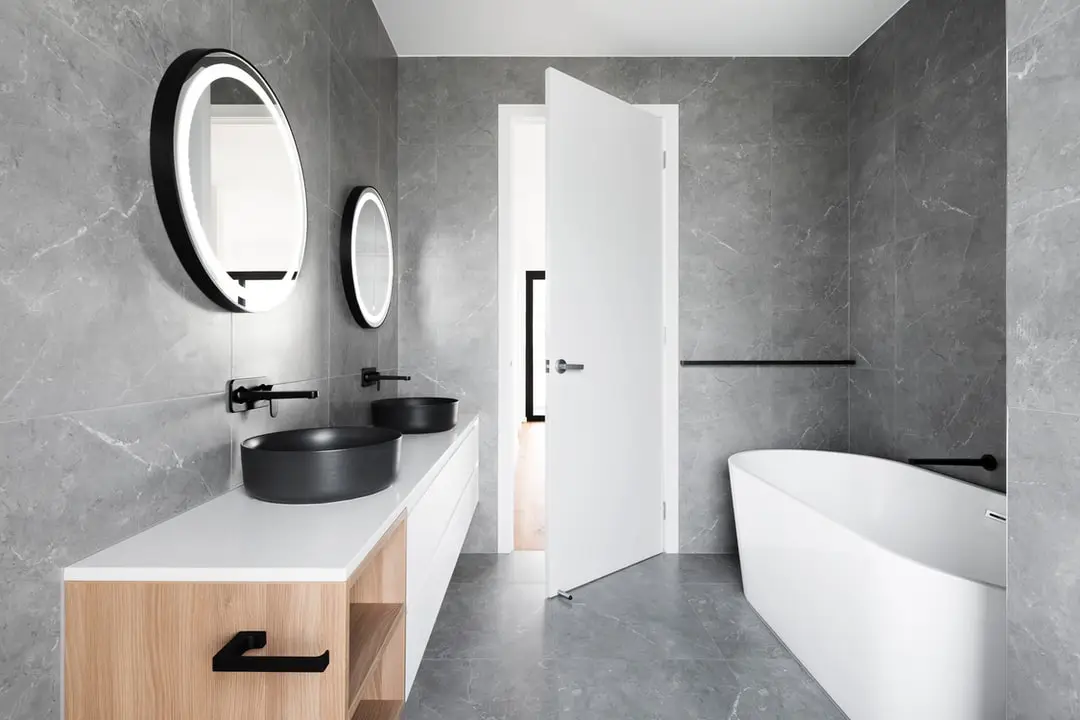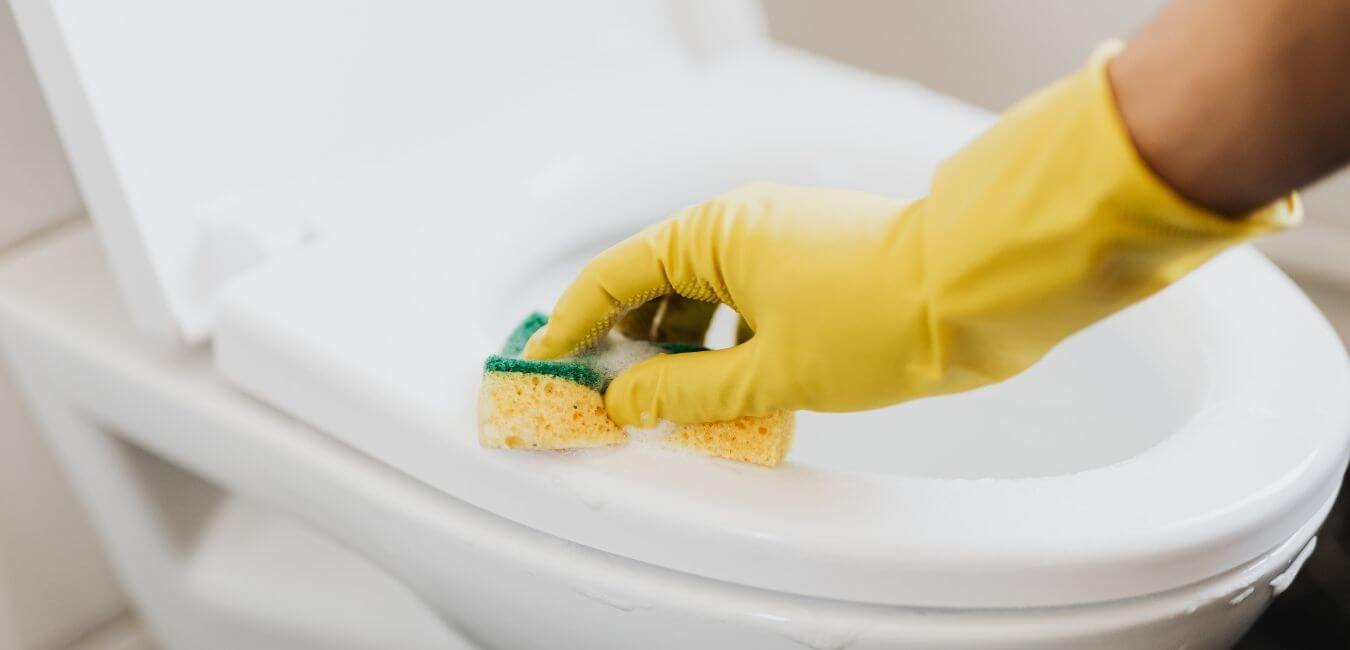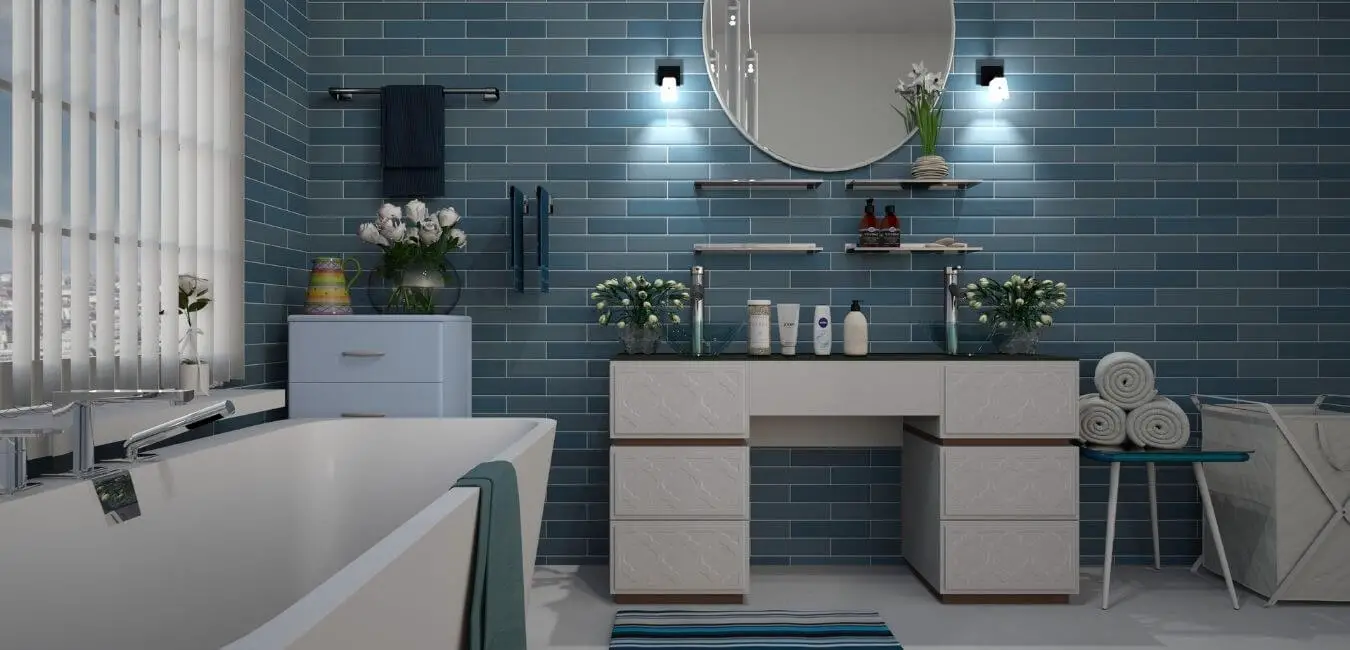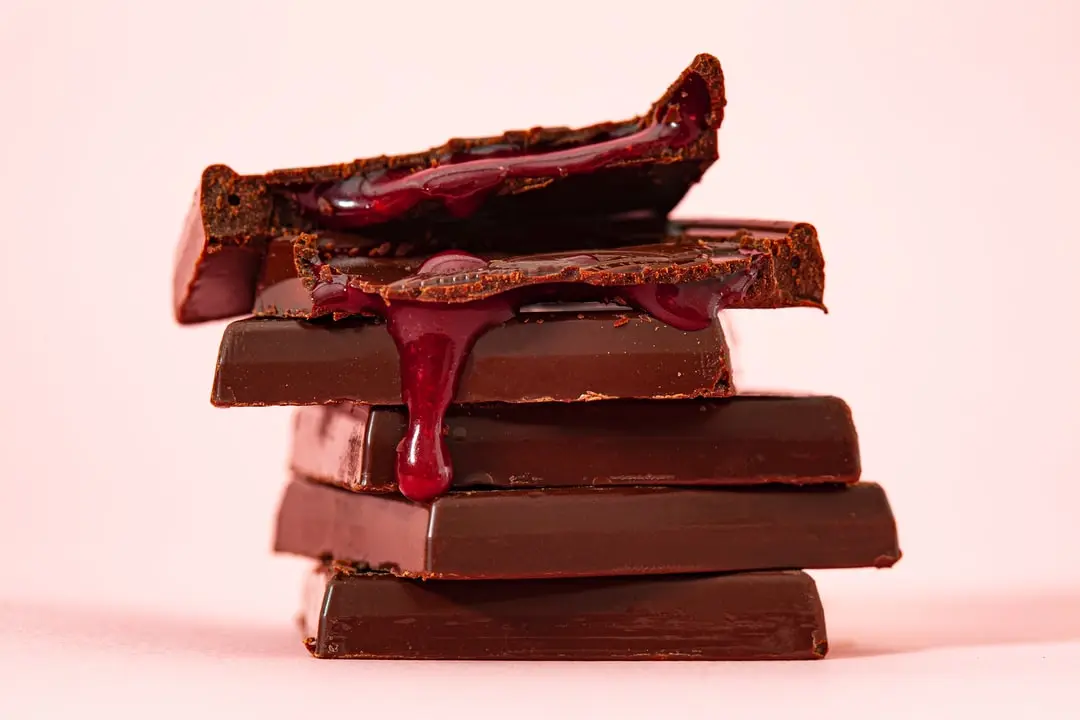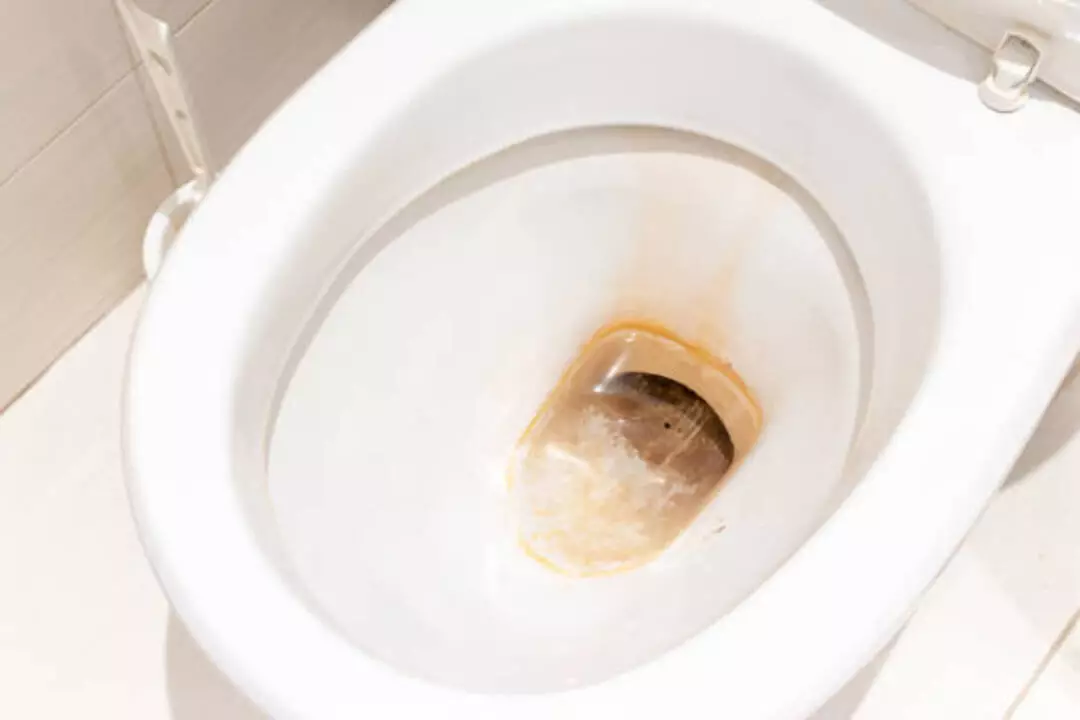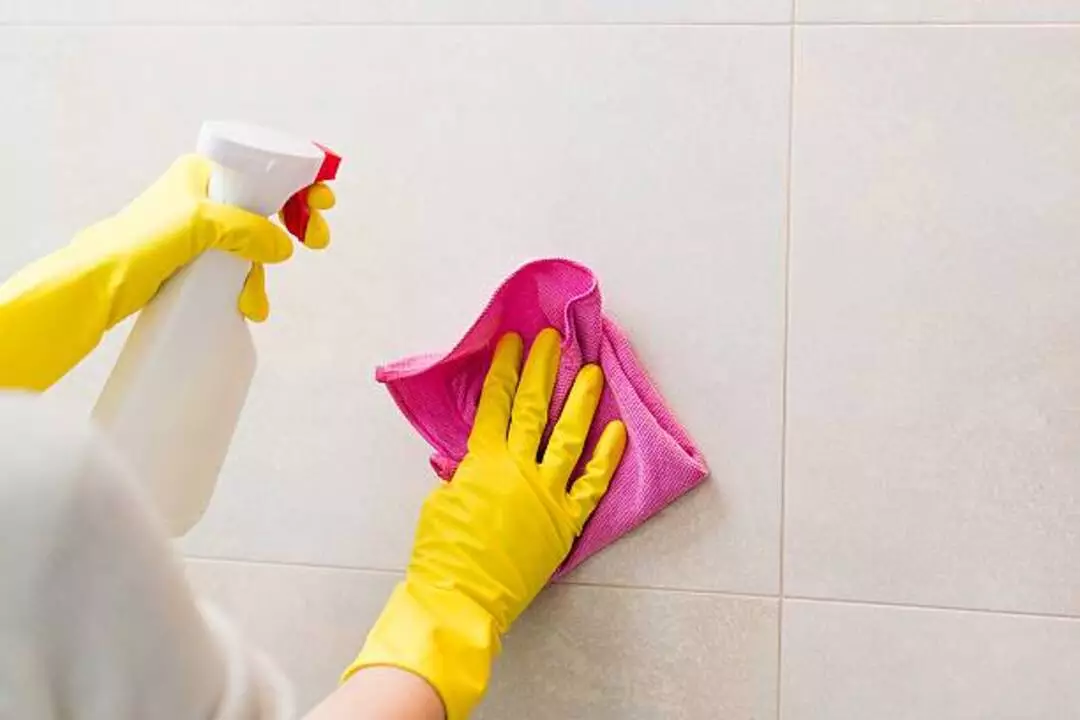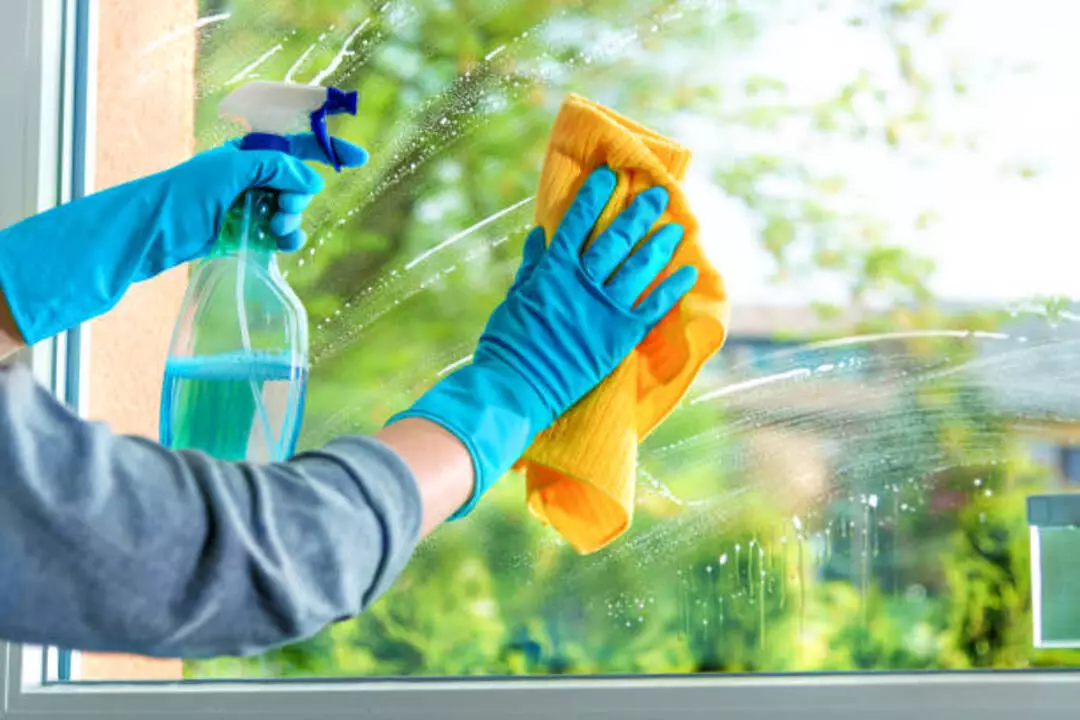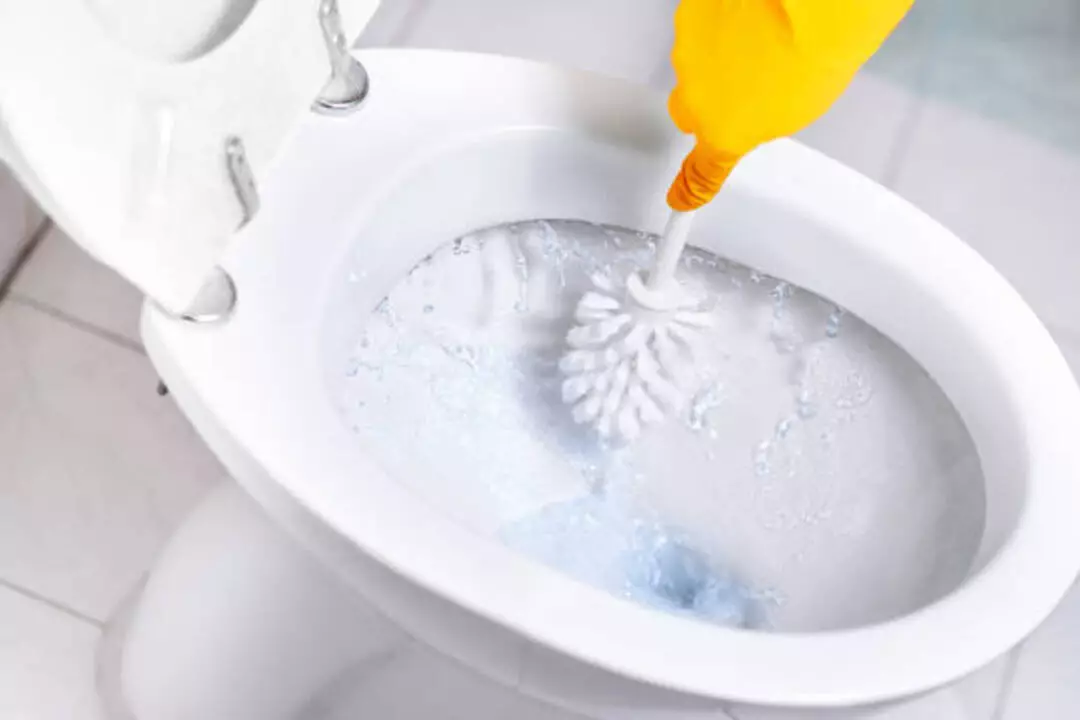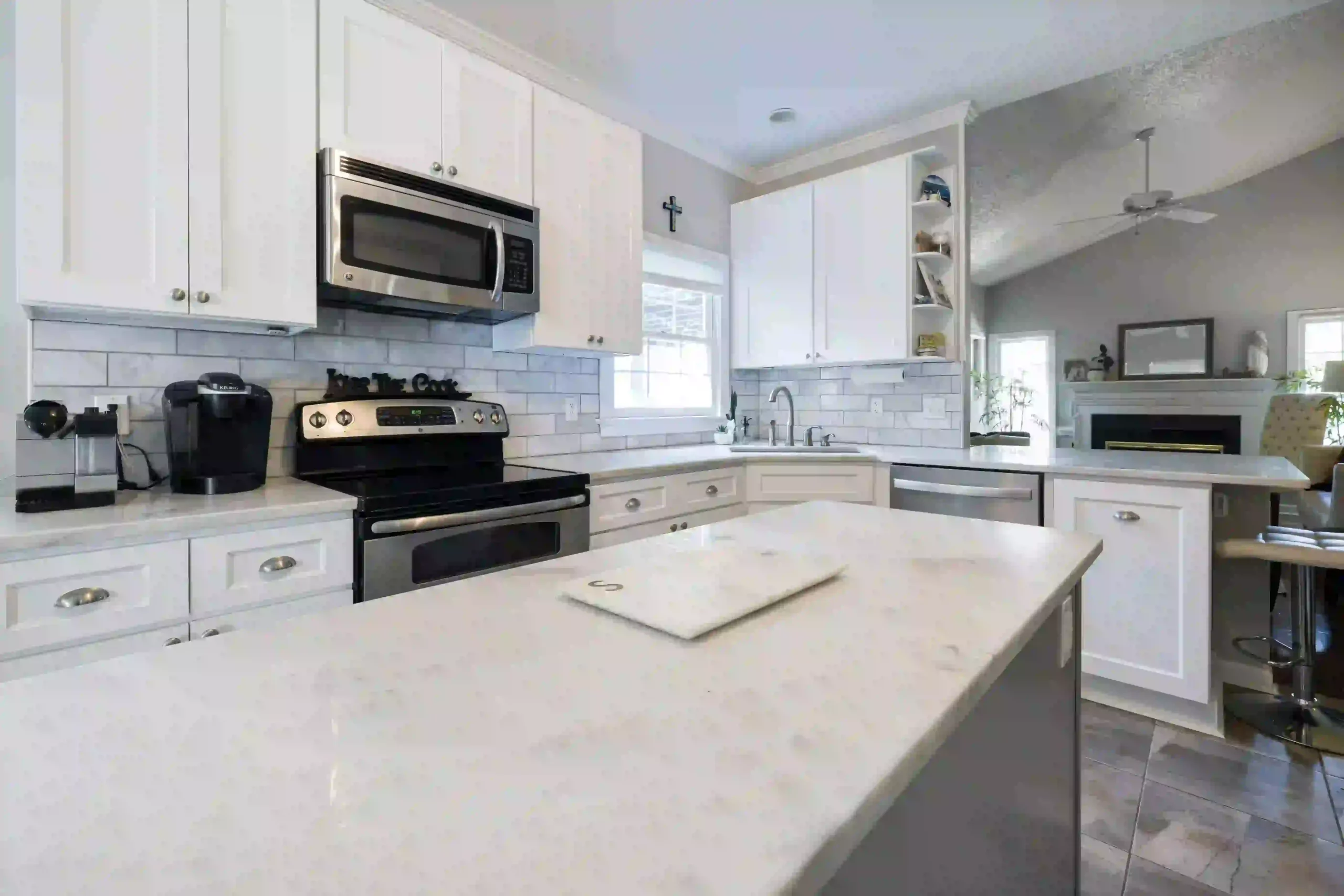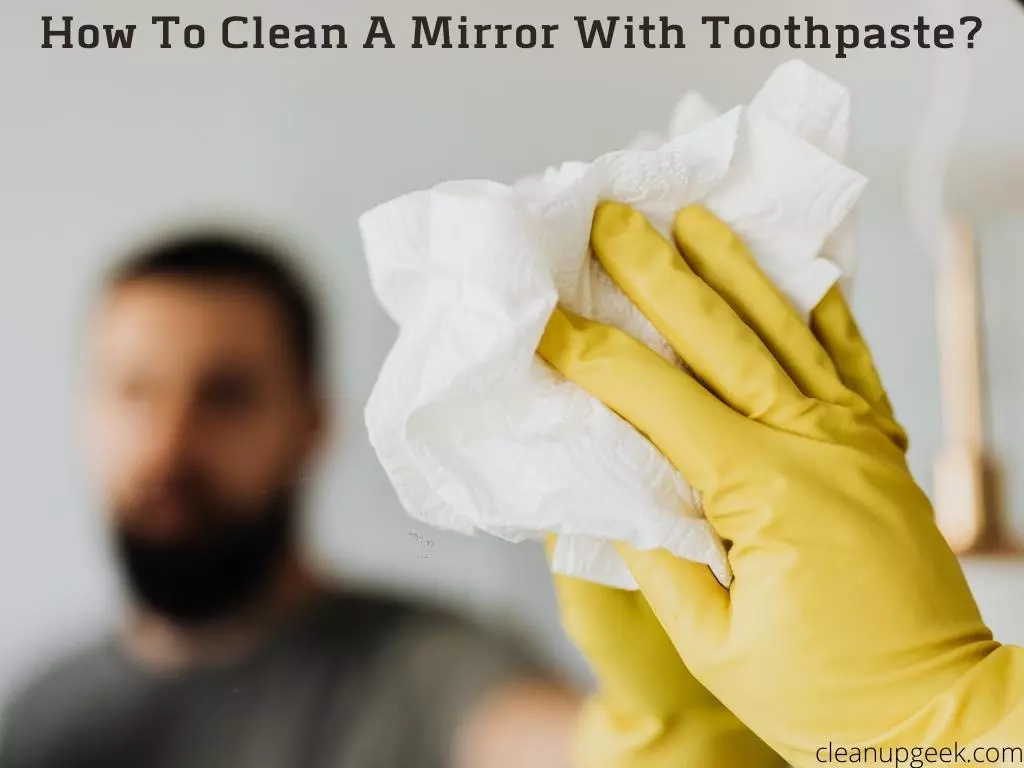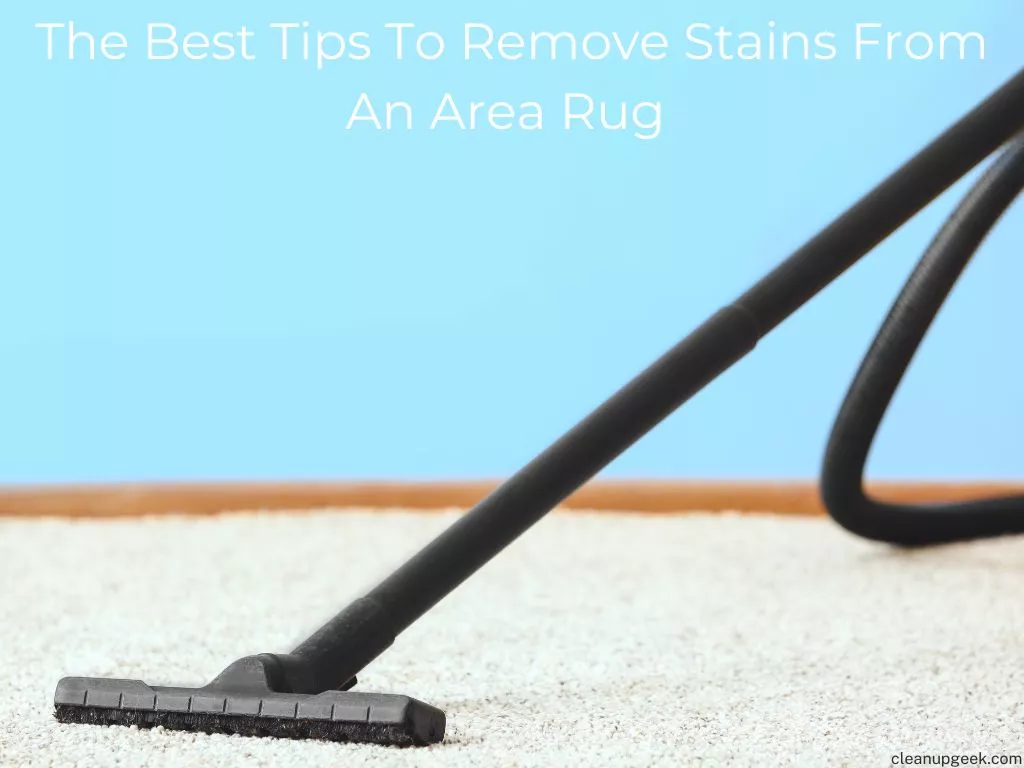Are you tired of staring at those unsightly rust stains in your tile shower? Believe it or not, these annoying spots can be caused by hard water deposits or the oxidation of metal fixtures.
This article is here to help, offering a comprehensive guide to effective methods for removing rust from tile showers. Continue reading and say goodbye to those stubborn stains once and for all!
KEY INFORMATION
- Rust stains on tile showers can be caused by the oxidation of metal fixtures, hard water deposits, and high levels of moisture and humidity in the bathroom.
- Factors to consider when removing rust stains include the type of tile material and surface, as well as the severity and age of the stains.
- Effective methods for removing rust stains from tile showers include using home remedies like vinegar, lemon juice, and salt, as well as commercial rust removers. It’s important to follow safety precautions and use the right equipment for effective stain removal.
- Preventive measures to avoid rust stains in tile showers include regular cleaning and maintenance, proper ventilation and moisture control, using rust-resistant fixtures and coatings, and considering installing water softeners or filtration systems.
Understanding the Causes of Rust Stains on Tile Showers

Rust stains on tile showers can be caused by the oxidation of metal fixtures, hard water deposits, and high levels of moisture and humidity in the bathroom.
1. Oxidation of metal fixtures
Metal fixtures rust over time. This happens when they are around water a lot. Showers have metal parts like taps and drains that can rust from being wet. Rust forms on these parts when the iron in them meets with air or water for too long.
Once the rust is there, it can move onto your tiles and leave ugly stains.
2. Hard water deposits
Hard water deposits can cause rust stains on tile showers. When water contains a high level of minerals like calcium and magnesium, it leaves behind hard water deposits that can build up over time.
These deposits can become rusty and leave unsightly stains on your shower tiles. To remove these stains, you will need to use appropriate cleaning methods and products that are effective against hard water deposits.
Regular cleaning and maintenance are also essential to prevent the formation of new stains. Take preventive measures by using water softeners or filtration systems in your home to reduce the mineral content in the water, which will help minimize the occurrence of hard water deposits and rust stains in your tile shower.
3. Moisture and humidity
Moisture and humidity play a significant role in the formation of rust stains on tile showers. When water combines with metal fixtures, it can lead to oxidation, which creates rust.
Additionally, hard water deposits containing high levels of minerals can contribute to the development of rust stains. The presence of moisture and humidity in the bathroom environment also promotes the growth of bacteria and mold, further exacerbating the problem.
To prevent rust stains, it is essential to ensure proper ventilation and control moisture levels in your shower area. Regular cleaning and maintenance are crucial for keeping surfaces dry and preventing the accumulation of water that could lead to rust formation.
Factors to Consider When Removing Rust Stains from Tile Showers

Consider the tile material and surface type, as well as the severity and age of the stains, when removing rust stains from tile showers.
1. Tile material and surface type
Different types of tiles and surfaces can react differently to rust stain removal methods. Porcelain, ceramic, and stone tiles are commonly used for showers. Porcelain tiles have a smooth surface that is resistant to stains, making them easier to clean.
Ceramic tiles also have a smooth surface but may require more scrubbing to remove stubborn stains. Stone tiles, such as marble or granite, are more porous and delicate, requiring gentle cleaning methods to avoid damage.
In addition to tile material, the type of surface finish can affect stain removal. Glossy finishes tend to be less porous and easier to clean compared to matte or textured finishes.
2. Severity and age of the stains
The severity and age of the rust stains on your tile shower are important factors to consider when removing them. If the stains are new and not too severe, they may be easier to remove compared to old and deeply embedded stains.
Newer stains might only require a gentler cleaning method or a mild solution like vinegar or lemon juice.
On the other hand, older and more stubborn rust stains may need stronger commercial rust removers or a combination of methods for effective removal. It’s important to choose the appropriate method based on how severe and old the stains are in order to achieve the best results.
Remember that safety precautions should always be taken when dealing with any cleaning chemicals or abrasive tools. Make sure to read instructions carefully and wear protective gloves if necessary.
3. Safety precautions
When removing rust stains from tile showers, it is important to take safety precautions. Make sure to wear gloves and protective eyewear to avoid any skin or eye irritation from cleaning solutions.
Ventilate the area well by opening windows or using fans. Avoid mixing different chemicals, as they can create toxic fumes. Follow the instructions on commercial rust removers carefully and keep them out of reach of children and pets.
Be mindful of slips and falls by placing non-slip mats in the shower area when using water or cleaning solutions.
Effective Methods for Removing Rust Stains from Tile Showers
Discover the power of home remedies using vinegar, lemon juice, and salt to effectively remove stubborn rust stains from your tile showers. Don’t miss out on these easy and cost-effective techniques!
1. Home remedies using vinegar, lemon juice, and salt
If you’re dealing with rust stains on your tile shower, there are some home remedies you can try using ingredients you may already have in your kitchen. Here are a few methods to consider:
- Distilled white vinegar and salt: Mix equal parts vinegar and salt to create a paste. Apply the paste to the rust stain and let it sit for about 15-30 minutes. Scrub the area with a soft brush or sponge, then rinse with water.
- Lemon juice and salt: Squeeze fresh lemon juice onto the rust stain, making sure to saturate the area. Sprinkle salt over the lemon juice and let it sit for at least an hour. Scrub the stain with a brush or sponge, then rinse thoroughly.
- Vinegar soak: If you have larger or stubborn rust stains, fill a spray bottle with vinegar and mist the affected area. Let it sit for about an hour, then scrub it with a brush or sponge before rinsing.
- One effective method mentioned is using a mixture of distilled white vinegar and salt, where the vinegar dissolves the rust and the salt acts as an abrasive for scrubbing.
- Another method suggested is using fresh lemon juice, which contains citric acid that helps break down rust stains.
- The article highlights the importance of thorough cleaning and keeping metal pieces dry to prevent the formation of rust stains.
- It mentions the use of vinegar for old rust stains, where the vinegar is poured directly onto the stain and left to soak for an hour or two before scrubbing with table salt.
- The article recommends using a soft-bristled brush or an old toothbrush for scrubbing the rust stains.
2. Commercial rust removers
Commercial rust removers are effective options for removing rust stains from tile showers. Here are some key points about these products:
- Commercial rust removers contain powerful chemicals that can dissolve and remove stubborn rust stains.
- These products often come in spray or liquid form, making them easy to apply directly onto the stains.
- Follow the instructions provided on the packaging for the correct application and usage of the commercial rust remover.
- It is important to wear protective gloves and ensure proper ventilation when using these products, as they can be strong and potentially harmful if not handled correctly.
- Commercial rust removers are available at most hardware stores, supermarkets, and online platforms, making them easily accessible.
- Before applying a commercial rust remover, it is advisable to test it on a small inconspicuous area of the tile shower to ensure compatibility with the material.
- After applying the commercial rust remover, use a soft-bristled brush or sponge to scrub away the rust stain gently.
- Rinse thoroughly with clean water after removing the stain.
3. Equipment and tools for effective stain removal
To effectively remove rust stains from tile showers, you will need the right equipment and tools. Here are some essential items to have on hand:
- Soft-bristled brush or old toothbrush: These are great for scrubbing away rust stains without damaging the tile surface.
- Microfiber cloth or sponge: Use these to apply cleaning solutions and wipe away loosened rust particles.
- Distilled white vinegar: Vinegar is a natural acid that can dissolve rust stains. It’s an effective and affordable option for removing light to moderate rust stains.
- Lemon juice: The citric acid in lemon juice can also help break down rust stains. Squeeze fresh lemon juice onto the stain and let it sit for a few minutes before scrubbing.
- Salt: Salt acts as an abrasive for scrubbing away rust stains when mixed with vinegar or lemon juice.
- Commercial rust remover: Consider using a commercial rust remover if the stains are stubborn or severe. Follow the instructions on the product carefully for best results.
- Gloves and eye protection: When working with cleaning solutions and chemicals, it’s important to protect your hands and eyes from potential irritants.
Preventive Measures to Avoid Rust Stains in Tile Showers

To avoid rust stains in tile showers, regularly clean and maintain the tiles, ensure proper ventilation and moisture control, use rust-resistant fixtures and coatings and consider installing water softeners or filtration systems.
1. Regular cleaning and maintenance
Regular cleaning and maintenance are crucial for preventing rust stains in tile showers. By keeping the shower area clean and dry, you can minimize the chances of rust formation. Make sure to wipe down metal fixtures after each use to remove any moisture that may lead to oxidation.
Use a mild cleaner specifically designed for tile surfaces to regularly clean the shower walls and floor. Scrubbing with a soft-bristled brush or an old toothbrush can help remove any dirt or residue that could potentially cause rust stains.
Additionally, consider sealing the tile to create a protective barrier against moisture and prevent staining. By incorporating regular cleaning and maintenance into your routine, you can protect your tile shower from unsightly rust stains and keep it looking fresh and clean for longer.
2. Proper ventilation and moisture control
To prevent rust stains in tile showers, it’s important to have proper ventilation and moisture control. When the bathroom is humid and damp, it creates an environment where rust can easily develop.
By ensuring good airflow and reducing moisture buildup, you can minimize the chances of rust stains occurring.
One way to improve ventilation is by using exhaust fans or opening windows after showering. This helps to remove excess humidity from the air and prevents it from settling on surfaces.
Additionally, keeping the bathroom door open while showering allows for better air circulation.
Moisture control also involves drying metal fixtures and surfaces thoroughly after each use. Wipe down any wet areas with a towel or cloth to prevent water from sitting on them for extended periods.
This reduces the likelihood of rust forming on these surfaces.
3. Using rust-resistant fixtures and coatings
To further prevent rust stains in tile showers, consider using rust-resistant fixtures and coatings. These specialized products are designed to resist the formation of rust and corrosion, helping to maintain the cleanliness and appearance of your shower.
Rust-resistant fixtures, such as stainless steel or plastic showerheads and faucets, are less likely to develop rust spots over time. Additionally, applying a protective coating on metal surfaces can create a barrier against moisture, preventing the oxidation process that leads to rust stains.
By investing in these durable and protective solutions, you can significantly reduce the need for frequent stain removal in your tile shower.
4. Water softeners and filtration systems
Water softeners and filtration systems can be effective in preventing the formation of rust stains on tile showers. These systems work by removing minerals, such as iron and calcium, from the water supply.
By reducing the mineral content in the water, they help prevent the buildup of rust and other deposits on your tiles and fixtures. Installing a water softener or filtration system can be a proactive step to minimize the occurrence of rust stains in your bathroom.
Regular maintenance and cleaning should still be done to ensure optimal results.
Frequently Asked Questions

1. What is an effective method for removing rust from tile showers?
The vinegar and salt method is a home remedy that proves to be an effective way of removing rust stains from bathroom surfaces, tiles in particular.
2. How can I get rid of rust from porcelain tiles?
Cream of tartar mixed with water forms a paste that helps in removing rust stains from porcelain tiles.
3. Are there any common items to remove rust stains from plastic or metal?
Yes, lemon juice mixed with salt works well for removing rust stains on both plastic and metal.
4. Can bleach help to remove the stain caused by rust on clothes?
No, using bleach will not assist in removing the rusty marks but may cause damage instead use other safer methods like vinegar and salt mixtures.
5. What are some factors to consider when trying to remove a stain on my shower tiles?
Some factors include knowing what caused the stain because different causes need various techniques for removal such as specific methods for tile cleaning and ways of maintaining your shower.
Conclusion and final thoughts
In conclusion, this comprehensive guide has provided effective methods for removing rust from tile showers. By understanding the causes of the stain and considering factors like tile material and severity, you can choose the right method for removal.
Whether using home remedies or commercial products, it’s important to scrub with vinegar and salt or lemon juice to break down the rust stains. Don’t forget to take preventive measures by regularly cleaning and drying your shower area to minimize future rust stains.
Say goodbye to those stubborn rust marks!
